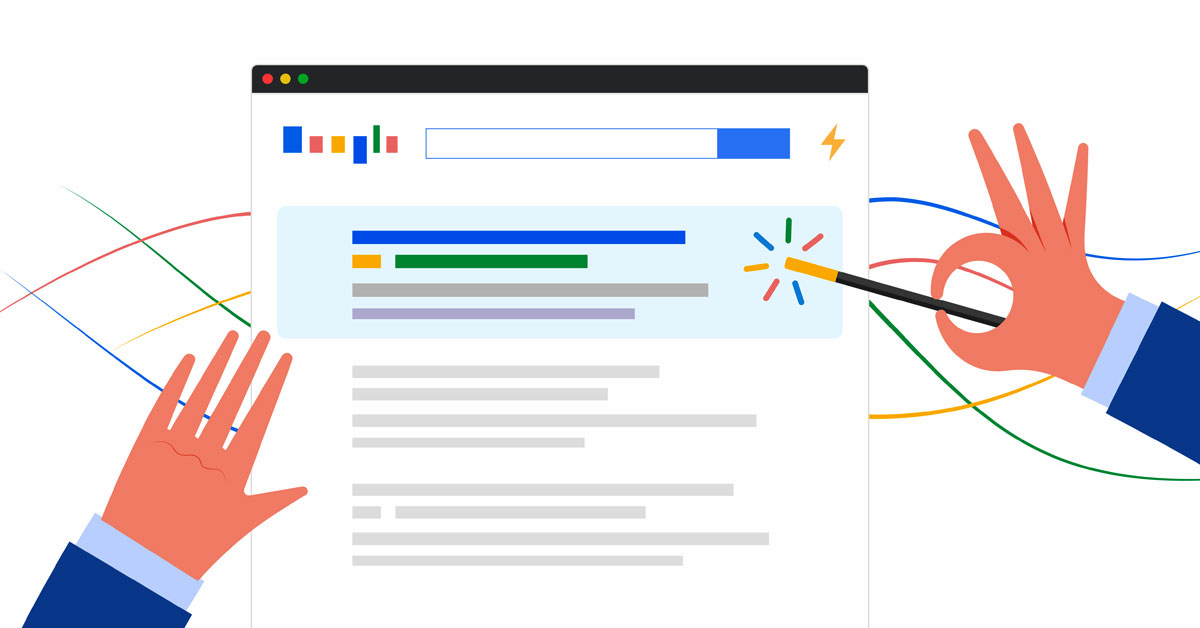Unlocking Google's Algorithm: What You Need to Know to Rank #1
Secrets of Google's 2023 Algorithm: How to Optimize for Success
As of 2023, Google continues to be the most popular search engine, commanding over 90% of the global search market share. In order to provide users with the most relevant and high-quality search results, Google uses a complex algorithm that considers hundreds of ranking factors. Here are some of the most important Google algorithm ranking factors for 2023:

1. Content Quality and Relevance
Google places a high emphasis on the quality and relevance of the content on a website. The content should be unique, informative, and engaging. It should also be relevant to the user’s search query and the overall theme of the website.
2. User Experience
Google wants to provide users with a positive experience when they visit a website. This means that the website should be easy to navigate, fast loading, and mobile-friendly. Google also considers factors such as bounce rate, time on site, and click-through rates when determining the user experience of a website.
3. Backlinks
Backlinks are links from other websites that point to your website. Google considers backlinks as a sign of trust and authority. However, not all backlinks are created equal. Google now places a higher value on high-quality, relevant backlinks from authoritative websites.
4. Page Speed
In today’s fast-paced digital world, users expect websites to load quickly. Google considers page speed as an important ranking factor. Websites that load quickly provide a better user experience and are more likely to rank higher in the search results.
5. E-A-T
E-A-T stands for Expertise, Authority, and Trustworthiness. Google considers these factors when determining the quality of a website. Websites that are written by experts, have a high level of authority, and are trustworthy are more likely to rank higher in the search results.
6. Schema Markup
Schema markup is a type of structured data that helps search engines understand the content on a website. Websites that use schema markup are more likely to appear in featured snippets, rich results, and other search features.
7. Mobile First Indexing
With the majority of internet users accessing the web from mobile devices, Google now uses mobile-first indexing. This means that the mobile version of a website is used for indexing and ranking.
8. Local SEO
For businesses that serve a local area, local SEO is crucial. Google considers factors such as proximity, relevance, and prominence when determining the local ranking of a business.
9. Artificial Intelligence
Google uses artificial intelligence and machine learning to better understand user intent and deliver more personalized search results. As AI continues to develop, it is likely to become an increasingly important ranking factor.
Google Algorithm by Percentage
It’s important to note that Google does not disclose the specific percentages for each ranking factor, as the algorithm is highly complex and the weight of each factor may vary based on the specific search query and user intent. However, it is generally agreed upon by SEO experts that the factors listed below are some of the most important for Google rankings:
Content Quality and Relevance: Estimated to be around 20-25% of Google’s ranking algorithm.
User Experience: Estimated to be around 15-20% of Google’s ranking algorithm.
Backlinks: Estimated to be around 15-20% of Google’s ranking algorithm.
Page Speed: Estimated to be around 5-10% of Google’s ranking algorithm.
E-A-T: Estimated to be around 5-10% of Google’s ranking algorithm.
Schema Markup: Estimated to be around 5-10% of Google’s ranking algorithm.
Mobile First Indexing: Estimated to be around 5-10% of Google’s ranking algorithm.
Local SEO: Estimated to be around 5-10% of Google’s ranking algorithm.
Artificial Intelligence: Estimated to be around 5-10% of Google’s ranking algorithm.
It’s important to note that these percentages are estimates based on industry analysis and may vary depending on the specific search query and user intent. Additionally, Google’s algorithm is constantly evolving, so the weight of each factor may change over time. The best approach for website owners and SEO professionals is to focus on optimizing all of these ranking factors in order to provide the best possible user experience and attract more traffic to their websites.
In Conclusion
In conclusion, the Google algorithm ranking factors for 2023 continue to prioritize user experience, content quality and relevance, backlinks, page speed, E-A-T, schema markup, mobile-first indexing, local SEO, and artificial intelligence. Website owners and SEO professionals who prioritize these factors are more likely to achieve higher search engine rankings and attract more traffic to their websites.
Latest News
Discover the latest trends and best practices in web design, development, SEO, social media marketing, Google & Bing Advertising and more on our weekly updated blog. Get practical tips, industry insights, and expert advice to help you build and grow your online presence. Visit us now and subscribe to our newsletter for exclusive updates and offers. Stay ahead of the game with our blog!




